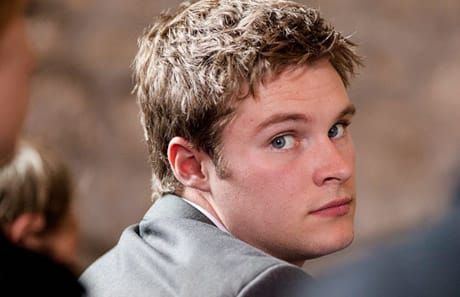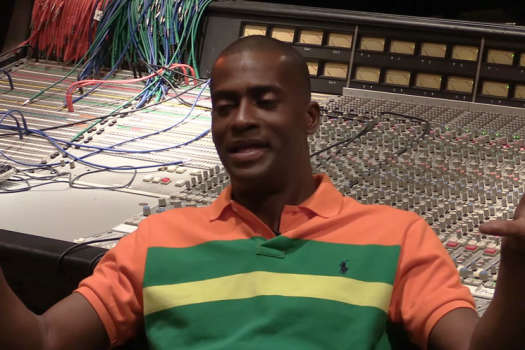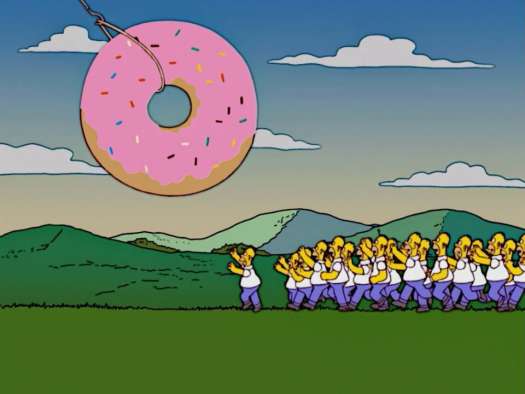Executed as a straightforward character piece, unfettered by undue didactics or a distracting aesthetic trajectory, Leonard Abrahamson's humble teen drama, What Richard Did, explores the fleeting fragility of a seemingly charmed life. It plays off the observation that a single bad decision or judgement call can change life drastically, forcing internal moral analysis and introspection onto even the most carefree and privileged of people.
Based on the Kevin Power novel Bad Day in Blackrock, this forced identity deconstruction finds Richard (Jack Reynor), a high school rugby star coasting his way through the summer before college, drinking and carousing with friends, trying to win the heart, or the panties, of local hottie Lara (Roísín Murphy).
Used to getting what he wants without struggle or external resistance, he finds his patience tested as fellow rugby buddy and ersatz black sheep Conor (Sam Keeley) maintains his friendship with Lara despite Richard's metaphoric stamp of ownership.
While jealousy in a teen love triangle isn't exactly an original concept, the low-key depiction of these relationships and the naturalistic handling of teen socialization keeps structural dignity in check. Without awkward exposition, we get a true sense of how this particular social lexicon exists, as well as its power dynamics.
No one calls Richard a golden boy or overtly kisses his ass, but we still get a sense that he's never experienced being an outsider or would even know how to approach questioning his desires or will. This is why a mid-movie fight changes everything so dramatically, forcing this affable, but dim, pretty boy to look at himself as an imperfect being, much to his astonishment and devastation.
Director Leonard Abrahamson maintains his subdued vision, allowing performances and extended moments of reflection assess how Richard and everyone around him copes with tragedy. But in doing so, there's a strange emotional distance that keeps this sombre morality play from packing a bigger punch than it could.
Because our protagonist is only beginning to discover the entire gamut of human complexity, our perspective on the situation is limited to his understanding of it, which is unfortunate, because even by the end of the film, he's not particularly deep.
(Element Pictures)Based on the Kevin Power novel Bad Day in Blackrock, this forced identity deconstruction finds Richard (Jack Reynor), a high school rugby star coasting his way through the summer before college, drinking and carousing with friends, trying to win the heart, or the panties, of local hottie Lara (Roísín Murphy).
Used to getting what he wants without struggle or external resistance, he finds his patience tested as fellow rugby buddy and ersatz black sheep Conor (Sam Keeley) maintains his friendship with Lara despite Richard's metaphoric stamp of ownership.
While jealousy in a teen love triangle isn't exactly an original concept, the low-key depiction of these relationships and the naturalistic handling of teen socialization keeps structural dignity in check. Without awkward exposition, we get a true sense of how this particular social lexicon exists, as well as its power dynamics.
No one calls Richard a golden boy or overtly kisses his ass, but we still get a sense that he's never experienced being an outsider or would even know how to approach questioning his desires or will. This is why a mid-movie fight changes everything so dramatically, forcing this affable, but dim, pretty boy to look at himself as an imperfect being, much to his astonishment and devastation.
Director Leonard Abrahamson maintains his subdued vision, allowing performances and extended moments of reflection assess how Richard and everyone around him copes with tragedy. But in doing so, there's a strange emotional distance that keeps this sombre morality play from packing a bigger punch than it could.
Because our protagonist is only beginning to discover the entire gamut of human complexity, our perspective on the situation is limited to his understanding of it, which is unfortunate, because even by the end of the film, he's not particularly deep.




